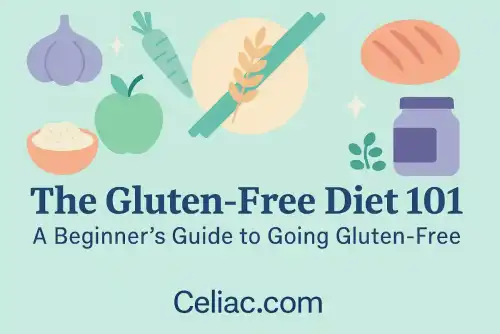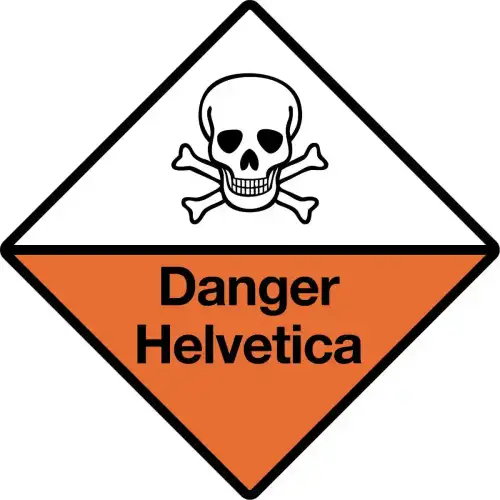
Celiac.com 10/29/2025 – Welcome to your ultimate beginner’s guide to celiac disease and gluten-free living. Whether you’re newly diagnosed or just exploring the gluten-free lifestyle, this guide will help you get started with confidence.
Eating gluten-free can dramatically improve your health if you have celiac disease or gluten intolerance. However, it’s important not to begin a gluten-free diet without medical supervision. Always consult with a qualified doctor or nutritionist before making major dietary changes—they can help ensure a safe, balanced transition.
Celiac.com Sponsor (A12):
If you suspect gluten intolerance or celiac disease, get tested before removing gluten from your diet. Once you start eating gluten-free, tests for celiac disease may no longer be accurate.
Celiac Disease Testing
To get accurate results, you must consume gluten for at least 6–8 weeks before blood tests and 2 weeks before a biopsy for celiac disease (learn more here). The FDA has approved a new test for celiac disease, so talk to your doctor about the latest testing options.
Prescription: A Gluten-Free Diet
Once diagnosed, your only treatment is a strict gluten-free diet. The good news: many people notice relief from symptoms within weeks. Complete intestinal healing can take 3–6 months for most people, though it may take up to 18 months or more.
Research suggests that supplements like L-glutamine and collagen may support gut healing—but be sure all supplements are clearly labeled “gluten-free.” You can find support and advice in our Celiac.com forums, where members share tips and product recommendations.
Create New Gluten-Free Habits
Transitioning to a gluten-free lifestyle means changing how you think about food, cooking, and even socializing. To avoid cross-contamination:
- Keep gluten out of your kitchen and off your utensils.
- Avoid kissing or sharing utensils with someone who’s eaten gluten.
- Be careful when eating out—only choose restaurants that understand gluten-free food prep.
For more help, visit Celiac.com’s extensive collections of gluten-free food lists, including ice cream, Halloween candy, Easter candy, snacks, beers, wines, and liquors.
What “Gluten-Free” Really Means
Gluten is found in wheat, rye, and barley. The FDA regulates the “gluten-free” label and allows it on foods containing less than 20 parts per million (ppm) gluten. Remember, “wheat-free” doesn’t mean “gluten-free.”
- Distilled Alcohols: All distilled spirits are gluten-free—even if made from grain.
- Vinegars: Distilled vinegars are also safe.
- Certified Products: Some programs certify foods below 10 ppm. Learn more at the Gluten-Free Certification Program.
Gluten-Free Shopping Tips
Shopping gluten-free takes time at first. Always read ingredient labels carefully, plan your meals, and stock up on safe staples. Compare products against these lists:
Setting Up a Gluten-Free Kitchen
Avoiding cross-contamination is critical. If possible, maintain a fully gluten-free kitchen. If that’s not feasible:
- Dedicate cutting boards, sponges, toasters, sifters, and utensils for gluten-free use.
- Label shelves and cupboards.
- Clean all surfaces thoroughly before preparing food.
Find helpful resources for gluten-free recipes and cooking tips on Celiac.com.
Dining Out Gluten-Free
Dining out can be risky. Studies show that 1 in 3 “gluten-free” restaurant meals contain gluten. Always ask about preparation methods and kitchen safety. You may also consider taking AN-PEP enzymes like GliadinX to help break down trace gluten if contamination occurs.
Gluten-Free Bathroom & Personal Care
Watch out for gluten in cosmetics and personal care products, especially lipsticks, lotions, and toothpaste. Those with dermatitis herpetiformis may react even to topical gluten. Switch to gluten-free hygiene products whenever possible.
Gluten-Free Medications & Supplements
Medications and supplements can contain gluten as fillers. Verify with your pharmacist and check the DailyMed database for inactive ingredients under “Ingredients and Appearance.” Always confirm with the manufacturer if you are uncertain.
Additional Considerations
Children with Celiac Disease: Communicate with teachers and staff about your child’s dietary needs. Education and planning are key to safety.
Pets: Pet food and kisses can be hidden sources of gluten exposure. Consider gluten-free or grain-free options.
Other Food Sensitivities: Some people also react to dairy, soy, or corn. Keep a food diary and consider an elimination diet with your doctor’s guidance.
Final Thoughts on Going Gluten-Free
Be Picky: Trust your body and don’t feel guilty about declining unsafe foods. Everyone’s sensitivity level differs.
Be Prepared: Keep gluten-free snacks handy in your car, bag, or office to avoid risky last-minute food choices.
Gluten-Free Quick Check
- Always read labels
- Call manufacturers if unsure
- Avoid cross-contamination
- Check personal-care products
- Verify supplements and prescriptions
- Keep a food diary
- Join our forum for support
- If in doubt, don’t eat it
Helpful Gluten-Free Resources
Celiac Disease & Gluten-Free Forum – Get real advice from people living gluten-free.
More Resources:
For detailed ingredient safety and certified product guides, see:









Recommended Comments